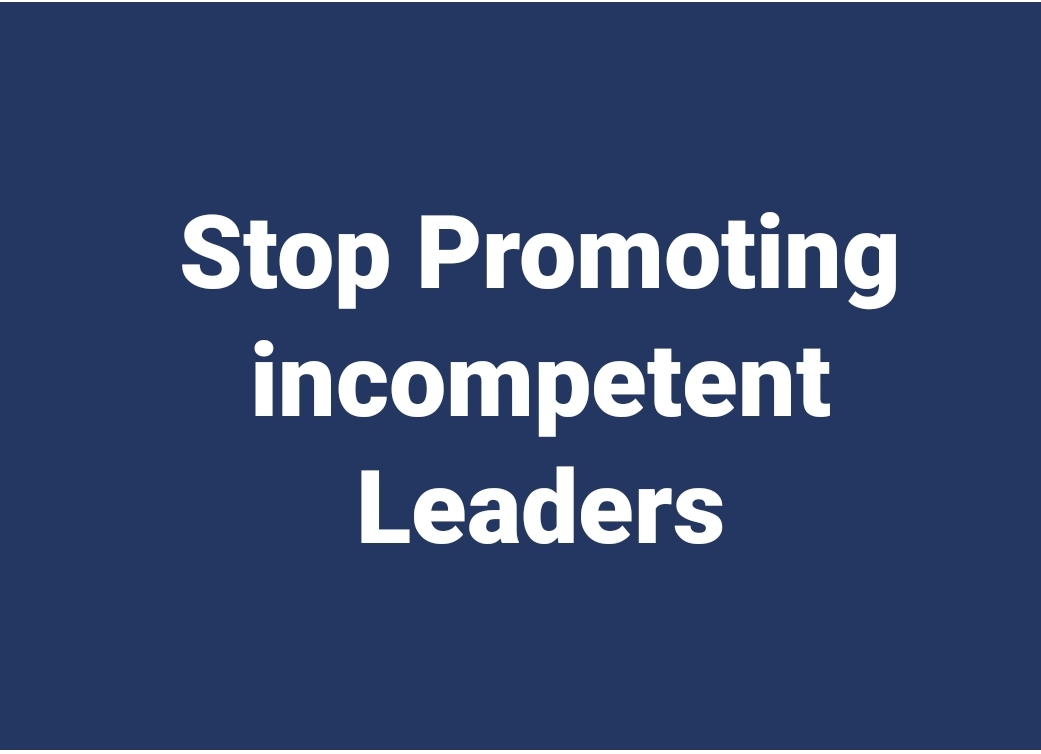Stop Promoting Incompetent Leaders
This article by the Harvard review can well be applied to our political leaders too. Yes, business is replete with people who are promoted to leadership position some other reasons other than competence. In a lot of State-Owned Enterprises where the appointment of leaders are for political patronage and not a meritocracy, the results are worse. I say some because I know about the State-Owned Media where the appointment is through a competitive process conducted by the NMC.
In politics we appoint leaders through election for a lot of reasons other than competence Are we then surprised by the results we get. For the corporate world when you promote incompetent men to lead the results are failed business with people losing their jobs and investors losing the fund, etc, very little lives are lost and recovery is possible.
But when we do this in politics and which is more the norm than the exception, from the so-called 1st world or developed economies to the 3rd world and underdeveloped countries, we see a lot of that play out. The result is catastrophic and most of the time irrecoverable especially the lives lost. There are a lot of deaths from avoidable causes, wars, poverty and disease. The implications are dire for humankind and we should learn from the good practices from business and figure out how we apply these principles of business to politics.
We cannot continue like we have been doing with moneyocracy now dominating elections and I can speak for Ghana, there is a lot of evidence pointing to that. Till we change the way our major parties elect their candidates we would make very little progress. Read on what the HBR postulates, what are your views, share in the comment session.
There are too many incompetent men in leadership positions — in large part because businesses tend to promote people on the basis of charisma, confidence, and even narcissism. Instead, companies should be putting people in charge who demonstrate competence, humility, and integrity.
If you’re responsible for assessing leadership candidates, you should work on your ability to distinguish between confidence and competence. Remember that overconfidence is a natural result of privilege, which is often linked to gender.
Fortunately, you can use scientifically valid assessments to measure the traits you want (or don’t want) in your leaders. You can ask company leaders, including emerging leaders, to take self-assessments, and then measure their responses against their leadership style, performance, and effectiveness.
The resulting data will help identify patterns that characterize good and bad leaders at your company. Of course, this practice will take time and effort, and many organizations won’t want to invest those resources. But vetting candidates for leadership roles will pay dividends down the line
This post has already been read 1231 times!







1 comment